TL;DR
- Open-source apps cut licensing costs, avoid lock-in, and scale affordably for SMBs.
- Top picks for 2024: Flatlogic, OpenCart, App Builder, SuiteCRM, Odoo, Rocket.Chat, Bubble, Vtiger, TurboCASH, Taiga.
- Flatlogic's AI app generator speeds delivery and customization, with low-code and templates.
- Selection criteria: fit, customization, community, ease of use, total cost, and security.
- Data points: 38% of SMBs fail from cash shortages; 78% of businesses adopt open-source.
Fact Box
- 38% of SMBs go down because they run out of money. Source
- 78% of businesses are turning to open-source software. Source
- Flatlogic can save at least 300 hours and $15,000 versus manual software development.
- App Builder enables building apps 10x faster with real-time code preview.
- OpenCart offers 13,000+ modules and themes to extend stores.
According to Forbes, 38% of SMBs (Small and Medium Businesses) go down because they run out of money. That’s because of poor financial management and less capital.
So, while investing in business software sounds like a winning deal, it’s a sinking ship in reality. For one, they have sky-high charges. Two, the more employees you have using them, the higher the cost.
So, what’s the solution? Open-source business applications!
Think about it: you could have a fully functional app or an eCommerce store running within a few hours. And that too without writing a single line of code.
That’s exactly what these tools do. And to top it off, they skip the high licensing fees and can be easily tailored to fit your business.
It’s no surprise that 78% of businesses are turning to open-source software today.
But which are the top open-source business applications for SMBs and how do you pick the right one? That’s what we’ll learn in today’s post.
Benefits of Open-source Applications for SMBs
Running a small business can be tough on the wallet. That’s where open-source software can be a lifesaver.
Here’s how:
- No Big Licensing Bills
Salaries, marketing, and operational costs take a major portion of your budget. Adding pricey software licenses can be a real burden.
With open-source software, you don’t have to pay any licensing fees. You might need to pay for premium features, but it’s a lot cheaper than what you’d pay for proprietary software.
- Easy Customization
I believe it should be software that adapts to a business and not the other way around. That’s exactly what you get by going open-source.
You can modify the application to suit your daily operations. You can add more features to it and remove elements that you don’t like without diving deep into coding. 
- Scalability
Proprietary software can become super restrictive as you expand your business. They’ll charge higher and even make it difficult for you to migrate to another solution.
With open-source software, there’s no vendor lock-in at all. In addition, you can easily scale them without any financial strain.
- Added Security and Reliability
It’s a myth that open-source platforms aren’t secure. You’d rather be upgrading your business’ data privacy by switching to an open-source application.
Why? Since the code is publicly available, users quickly identify and address vulnerabilities by applying open-source security best practices-often faster than proprietary software, which can take some time.
Top 10 Open-source Business Applications for SMBs in 2024
Now, let’s look at the 10 best open-source software for small and medium businesses in 2024:
| Application | Core Functionalities | Ideal Use Case | Customization | Community Support | Scalability |
| Flatlogic | Pre-built templates, automatic app generator, custom ERP, CRM | SMBs needing to build complex apps at low cost | Highly customizable, low-code components | Strong community support | Scalable with flexible tech stack |
| OpenCart | Administrator dashboard, user management, multi-store support | SMBs setting up an eCommerce store | Customizable with themes and extensions | Large community, technical support | Good for small businesses but expensive at scale |
| App Builder | No-code development, drag-and-drop interface, API integration | SMBs building mobile and web apps without coding | Limited customization for highly complex apps | Moderate community support | Highly scalable for simple apps |
| SuiteCRM | Sales automation, marketing campaign management, analytics | SMBs looking for an open-source CRM solution | High customization with community modules | Active open-source community | Flexible and cost-effective for SMBs |
| Odoo | Modular system, cloud/on-premise options, full business suite | SMBs needing an all-in-one business solution | Highly customizable with free and paid versions | Strong open-source community | Scalable with additional paid modules |
| Rocket.Chat | Real-time communication, omnichannel support, self-hosting | SMBs focusing on secure internal/external communication | Fully customizable for hosted solutions | Active community | Highly scalable for small to large teams |
| Bubble | No-code development, drag-and-drop interface, API integrations | SMBs building web apps without a development team | Limited customization for complex enterprise applications | Growing community | Scalable for small businesses |
| Vtiger | Kanban view, multiple pipelines, marketing automation | SMBs managing customer relationships and projects | High customization with custom modules | Recognized CRM leader with active support | Scalable with integrations and modules |
| TurboCASH | Invoicing, billing, tax management, financial reporting | SMBs handling local tax and accounting regulations | Customizable for different tax regimes | Active open-source community | Limited scalability for large enterprises |
| Taiga | Task management, Kanban/Scrum, backlog and issue tracking | Agile teams needing simple project management | Customizable workflows, reports, and dashboards | Active community support | Scalable for agile teams using Scrum/Kanban |
Flatlogic
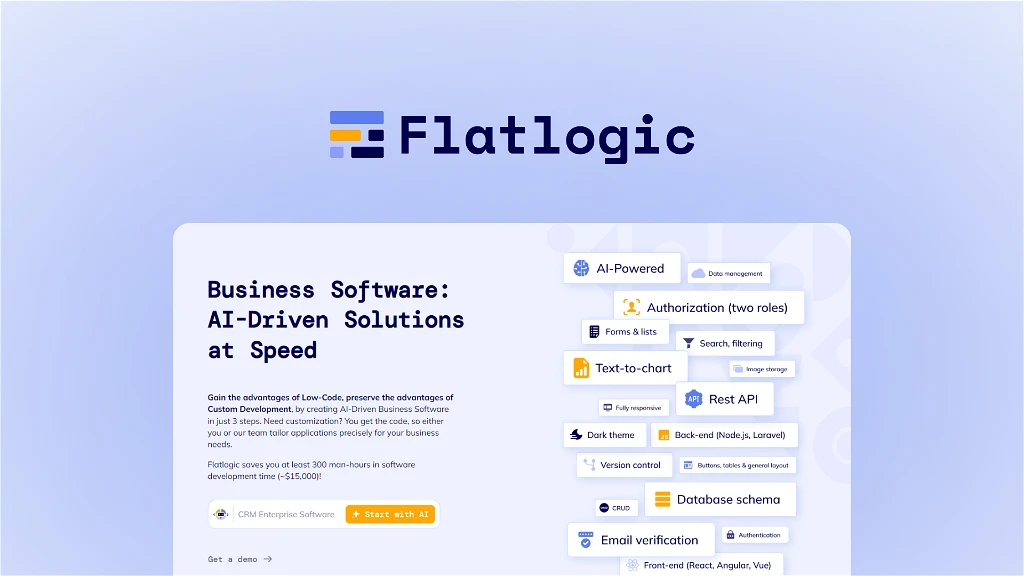
Flatlogic is a versatile open-source platform that provides AI-powered business solutions. From development to deployment, it allows you to create software within minutes and at a lower cost.
The best part? Its user-friendly interface lets you customize software without any technical expertise needed.
With Flatlogic, you can save at least 300 hours and $15,000 that otherwise would have gone into manual software development.
This tool is especially valuable for SMBs that need to build complex applications but don’t have the budget to hire a full development team.
Key Features: Pre-built front-end and back-end templates, automatic app generator, custom ERP, custom CRM, custom SaaS apps, headless CMS, etc.
Pros: Customizable components, rapid deployment, flexible tech stack, ease of use, numerous integrations, strong community support, low-code
Cons: Learning curve for customization, limited advanced features
Pricing: Free for basic features and templates, backend customization, and enhanced support offered under paid plans
OpenCart
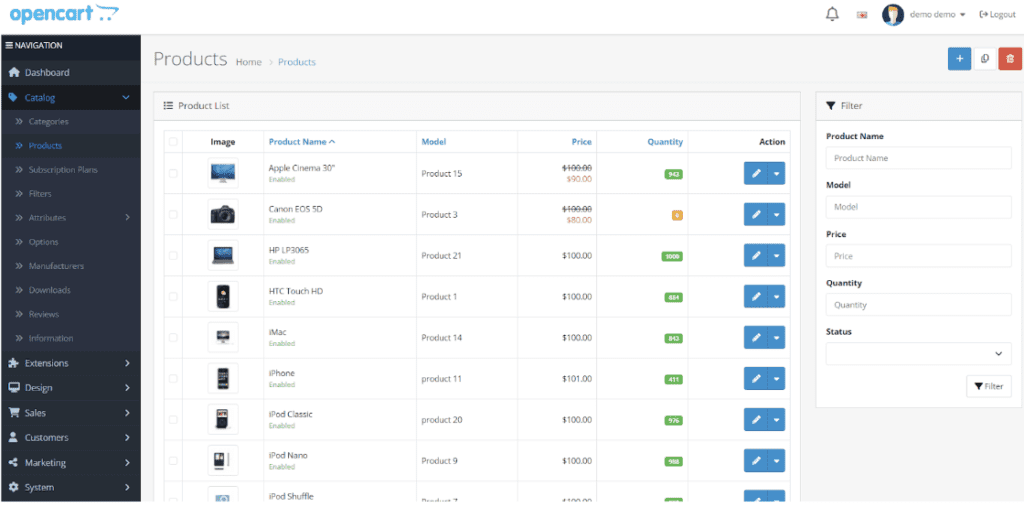
As more consumers shift to online platforms to find the best deals, no doubt these platforms are crucial for even the smallest businesses.
However, building a full-fledged eCommerce platform manually can quickly drain your capital. OpenCart solves this problem.
Whether you’re selling products like clothing, accessories, or even the best deal smartphones, OpenCart provides a flexible and affordable solution for setting up your eCommerce store quickly.
It simplifies the process of setting up and managing an online store. There’s no need to purchase and configure hosting. You can simply create your account, choose a plan that fits your current needs, and launch your store within minutes.
Key Features: Administrator dashboard, user management, multi-store, unlimited categories and products, multi-currency, top payment gateways, responsive, etc.
Pros: Free to download and use, 13000+ modules and themes, dedicated technical support, community support, built-in SEO
Cons: Good for small businesses, but can get expensive while scaling up
Pricing: OpenCart is free, but the costs can pile up when you add hosting, premium themes, and paid extensions.
App Builder
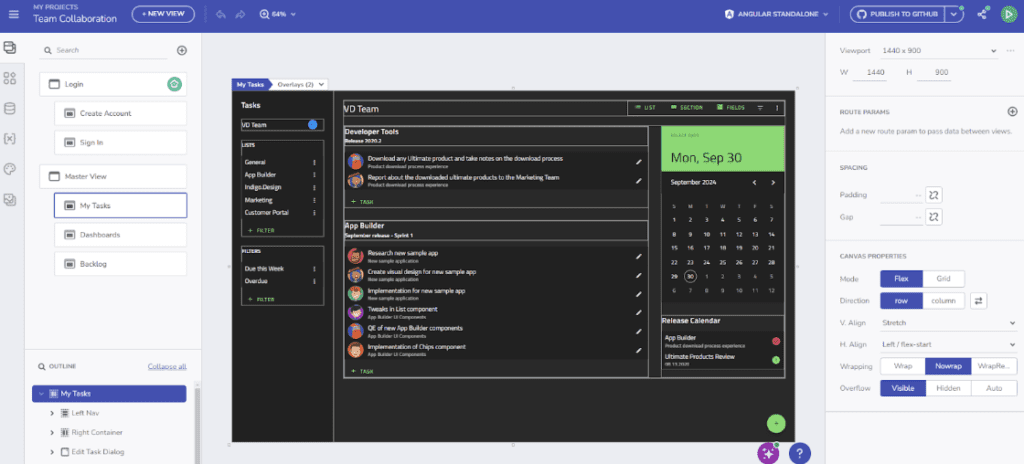
App Builder lets you build and deploy mobile and web apps without any coding. It is highly suitable for small businesses to create necessary business applications with ease and at reasonable rates.
You can also use the App Builder AI to automate the app development process. Right from creation to deployment, the AI helps you visualize what you want to generate in an instant.
With App Builder, you can build apps 10x faster and preview code in real-time. Once your app is built, you can integrate it with other tools and services to make it all the more powerful.
Key Features: No-code development, drag-and-drop interface, cross-platform, API integration, pre-built templates, 100% cloud-based WYSIWYG
Pros: Quick development, robust app testing, instant data creation, compatible with popular design tools like Sketch and Figma, highly affordable
Cons: App Builder is great for building simple to moderately complex apps. However, it might not support highly complex enterprise solutions.
Pricing: While it doesn’t offer any free plans, the basic App Builder starter plan is reasonably priced for its extensive features.
SuiteCRM
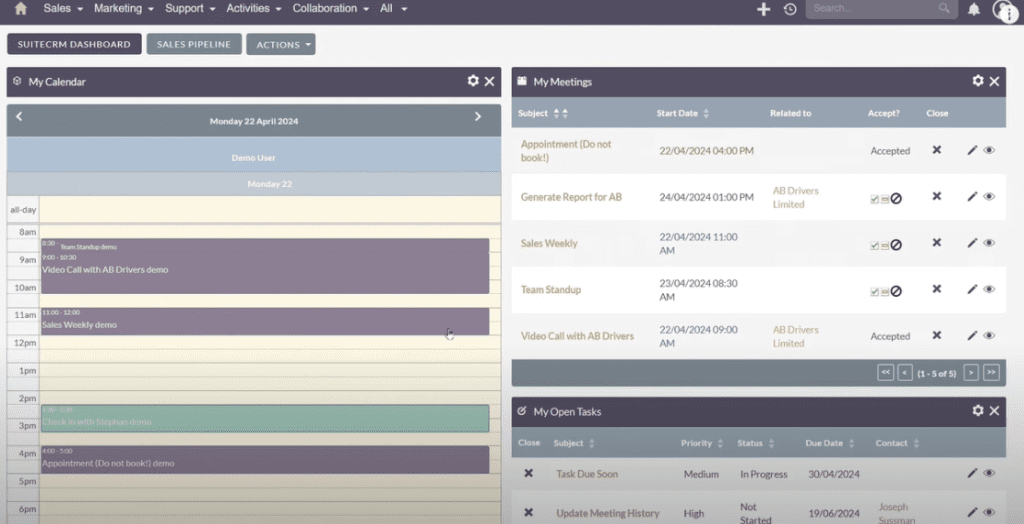
SuiteCRM is another one of the top, free open-source CRM. It offers numerous features to help manage customer relationships. For example, with its marketing tools, you can automate campaigns to run smoother and generate leads.
Many SMBs choose SuiteCRM because it’s flexible and provides the same CRM functionality without high licensing fees. It’s a good deal for smaller businesses as most features are free.
Not only that, but it gives you a complete view of your customer data. Plus, you can customize your CRM and get active support from its community.
Key Features: Sales automation, marketing campaign management, custom modules, analytics and reporting
Pros: Open-source flexibility, cost-effectiveness, community support for constant updates and improvement, comprehensive CRM features
Cons: Limited dedicated support (unless you opt for paid support) and a complex setup
Pricing: SuiteCRM’s most features are free to use, making it ideal for SMBs. However, additional support and cloud hosting are available at higher charges.
Odoo
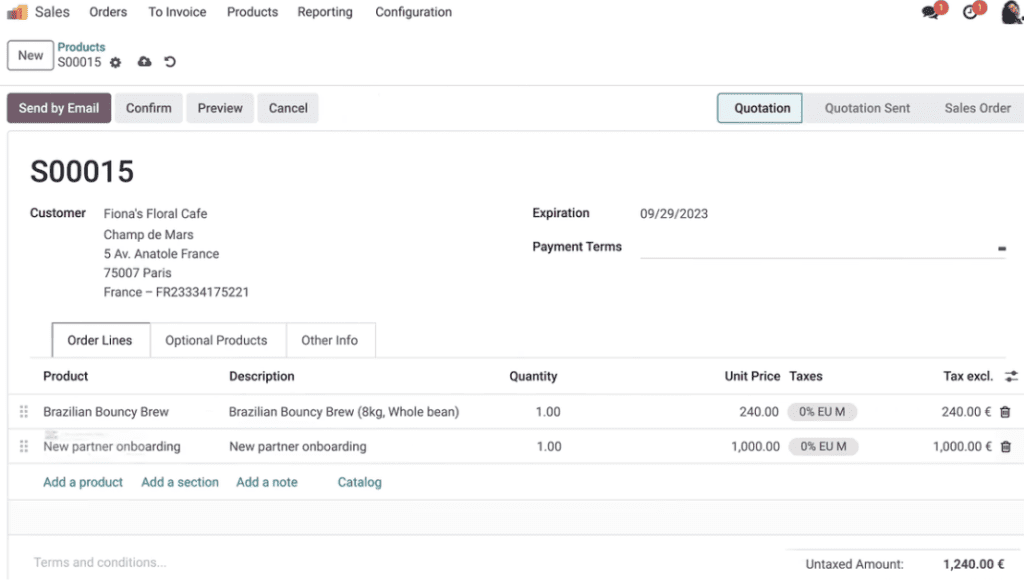
Odoo is a top choice for small to medium-sized businesses. Its all-in-one design really helps boost productivity and slash operational costs.
The best part about Odoo is that it has an app for nearly every SMB operation. Finance, human resources, sales, websites, marketing-you name it and Odoo has got it.
Businesses can simply pick the app that works the best for them and scale up as easily as they grow. For instance, the accounting app takes care of invoicing and expense tracking. The sales app handles leads and performance analysis.
Odoo is 100% open-source and doesn’t have a proprietary format. This means no vendor lock-in and complete ownership of your data.
Key Features: Modular system, seamless integration, deep customization, cloud and on-premise options
Pros: A truly all-in-one solution, highly customizable and scalable, covers almost every basic business function, a free community version
Cons: Extensive features can be overwhelming, advanced features can be costly
Pricing: Odoo offers a free community version as well as an enterprise edition for some premium features. There are also additional charges for some specific modules and cloud hosting features.
Rocket.Chat
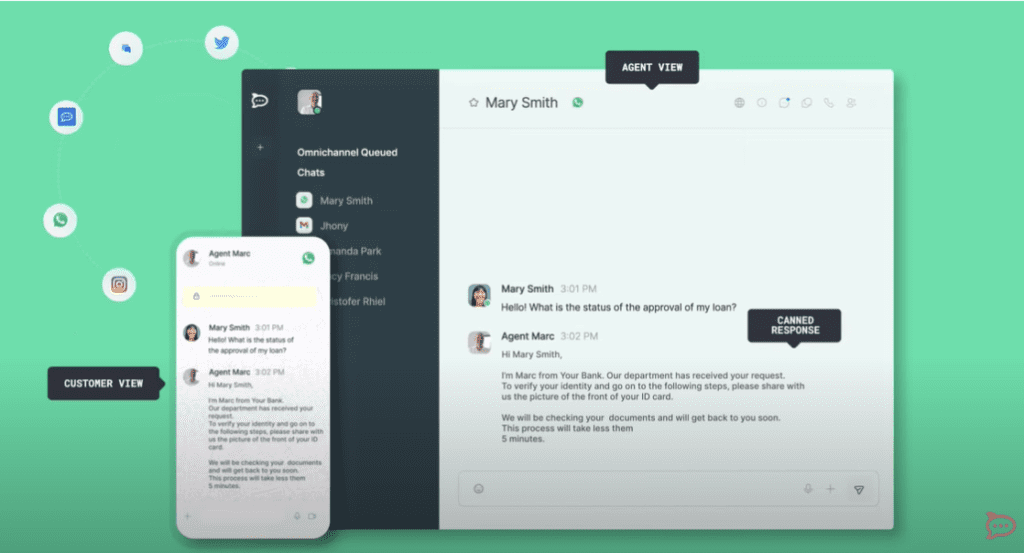
Rocket.Chat is an open-source communication platform that boosts collaboration and communication within SMBs. It allows businesses to host their communication hub, ensuring data privacy.
This is crucial for businesses like small law firms or IT startups.
Unlike Slack or Microsoft Teams, Rocket.Chat is fully open-source. This means businesses can tailor it to their needs, adding new features or tools. Such flexibility is rare in communication platforms.
Rocket.Chat also doubles as an open-source CRM software. It consolidates various communication channels, helping businesses manage customer interactions. For example, you can respond to a WhatsApp customer query directly in Rocket.Chat. This speeds up support and makes it more personalized.
Key Features: Real-time communication (team messaging, voice calls, video calls), omnichannel support, self-hosting, robust data privacy
Pros: Highly customizable and comparatively affordable than proprietary communication tools with similar functionalities
Cons: Self-hosting can require technical expertise
Pricing: Rocket.Chat is free for small teams and self-hosted solutions (ideal for SMBs). Their premium plans offer more advanced features like custom permissions and additional integrations.
Bubble
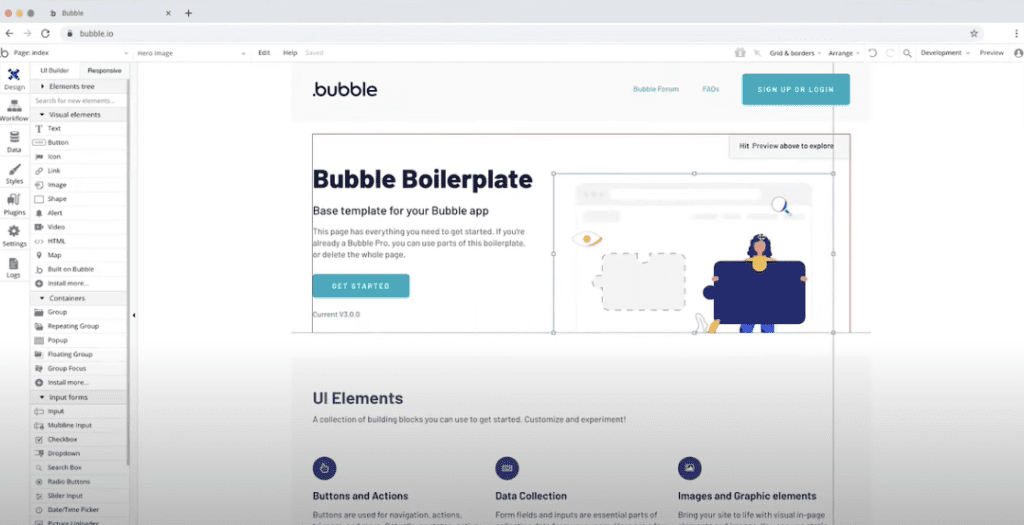
Bubble is another innovative open-source solution that helps SMBs build web applications through artificial intelligence. The software lets you quickly build applications for customer management, online marketplaces, etc., without hiring expensive development teams.
With Bubble, you can handle both the front-end and back-end with ease. Its visual editor allows users to design web pages, set up workflows, and configure databases within minutes!
Moreover, it has hundreds of customizable templates and reusable components so that you don’t have to build software from scratch. Bubble’s AI can create front-ends instantly based on your prompts.
Key Features: No-code development, drag-and-drop interface, scalable infrastructure, API integrations, AI-powered
Pros: Pre-built components, AI page generator, built-in database, logic functionality, rapid deployment, multilingual support, powerful analytics
Cons: While Bubble is ideal for SMBs, it offers limited customization for highly complex applications.
Pricing: Bubble offers five plans to suit businesses at different stages: Free, Starter, Growth, Team, and Enterprise. Each plan is designed to meet the needs of a growing business.
Vtiger
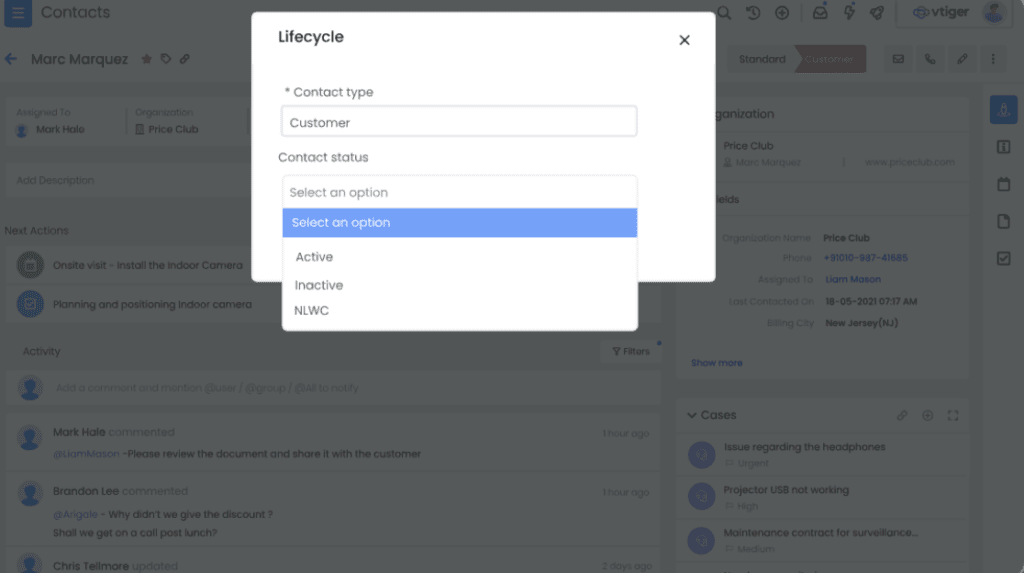
Vtiger is the perfect open-source CRM system for SMBs looking to boost their customer relationships. It is feature-packed with tools for marketing automation, project management, customer service management, etc.
With VtigerCRM, you can handle multiple functions from a single platform. This way, you can track leads, automate workflows, and support customer inquiries-all in one place.
Like other open-source applications, Vtiger is also highly adaptable. You can set advanced filters, build custom modules, automate repetitive tasks, set custom assignment rules, and so on.
Moreover, you can also control user access by specifying their roles, profiles, and permissions.
Key Features: Kanban view, deal one view, Vtiger calculus, multiple pipelines, lead nurturing, group mailbox, contact life cycle, Vtiger enrich, Vtiger mobile app, etc.
Pros: Unified product, 360° view of your data, easy customization, simple-to-use, easy setup, 500+ integrations, affordable, data security compliant, recognized CRM leader
Cons: Users with zero understanding of CRMs can take time to fully leverage the advanced features.
Pricing: Vtiger provides a free One Pilot version that covers all the basic features of a CRM. Premium features are grouped under One Growth, One Professional, One Enterprise, and One AI plans.
TurboCASH
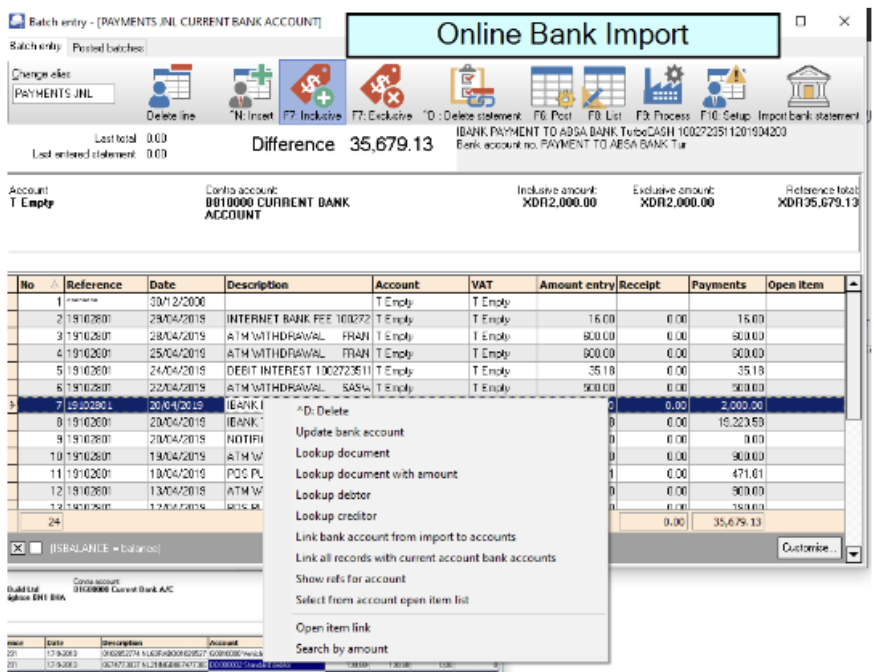
TurboCASH is an open-source accounting software designed specifically for SMBs. It’s affordable, customizable, and perfect for meeting specific tax and accounting regulations.
The software easily adapts to local practices, making it ideal for regions with strict regulations. It includes features like bookkeeping, payroll, VAT/GST management, financial reporting, etc.
In addition to this, TurboCASH supports multiple users. Thus, it’s a great choice for businesses with small and even remote teams. You can easily collaborate, streamline tasks, and boost the overall efficiency of your business.
Most importantly, you can configure it to suit your language and tax regime.
Key Features: Invoicing and billing, inventory management, tax management, financial reporting
Pros: Active open-source community support, multi-user functionality, affordable, simple interface, multi-currency support, automation tools
Cons: Limited features for large enterprises, the user interface is not modern or intuitive
Pricing: TurboCASH is completely free to use. However, some advanced features and add-ons are available at a cost.
Taiga
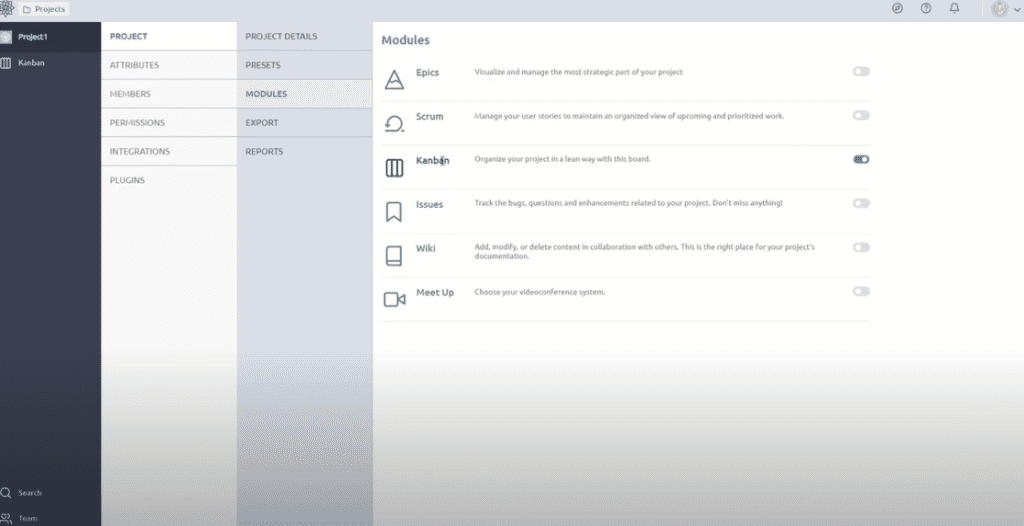
Taiga helps you organize your workflow, especially if you use agile development. It’s an open-source project management tool with a simple, intuitive, and user-friendly interface.
The sole aim of this tool is to simplify task management, collaboration, and milestone tracking in cross-functional agile teams.
Taiga is built around agile principles, supporting both Kanban and Scrum methods. Thus, it’s a great fit for development as well as for non-development teams.
You can switch to Scrum (and vice-versa), track issues/bugs, customize dashboards and reports, track progress, and a lot more.
What sets Taiga apart is its lack of clutter-it doesn’t overload users with features they don’t need.
Key Features: Kanban and scrum support, task management, backlog management, complete issue/bug tracking, time tracking, collaboration tools
Pros: Onboarding new team members is easy, customizable workflows, a complete set of dashboards and reports, easy integration and migration
Cons: Built specifically for agile teams
Pricing: Taiga is free for users who wish to self-host or use the basic features of the Taiga cloud. Premium support and on-premise hosting are covered under paid enterprise solutions.
Criteria for Choosing the Right Open-Source Application
I’ve jotted down six important considerations before choosing an open-source business application:
- Business Needs and Compatibility
Identify the specific challenges that you’re facing. Are you struggling with customer relationships, accounting, or project management?
Understanding your business needs and problems is the first step to choosing the right open-source application for your SMB.
- Customization
Not all open-source software is created equal. Thus, customization is a critical factor to consider.
Find out if you can tweak the software to fit your business needs. Or if you can add new features as you grow. Can you modify the interface, automate tasks, or integrate third-party plugins?
Go ahead if the software is flexible enough to adapt to your unique requirements.
- Community Support and Documentation
“A strong open-source community is essential for addressing technical challenges, sharing best practices, and understanding how to effectively use the software.”
– [ Ian Nicholls, Founder – AutomobilGarage.com ]
When choosing an open-source software, look for the size of community support and how active it is. A bigger community usually means quicker help and more frequent updates.
Also, check if the software has good documentation. You don’t want to get stuck in technical jargon, especially if dedicated support is not free.
- Ease of Use
Non-IT SMBs usually don’t have tech-savvy teams. Thus, it is necessary to pick software that’s user-friendly and has a minimal learning curve.
For example, prefer drag-and-drop and no-code functionality to quickly customize the software. Also, see if the application is responsive to different devices for maximum efficiency.
- Implementation and Maintenance Costs
While most open-source software is free, there can be additional costs involved. For example, implementation charges, hosting fees, premium features, enterprise solutions, dedicated support, etc.
So, choose wisely.
- Security Features
Open-source software can be as secure as proprietary tools. But it’s best to evaluate and verify their security measures.
Look for features like data encryptions, two-factor authentication, and RBAC. Most importantly, choose platforms that are compliant with global information security standards.
Conclusion
Open-source business applications are the MVPs of this digital transformation era. These tools not only save you money but also give SMBs room to grow without any limitations.
Choosing open-source software brings innovation, flexibility, and efficiency. It’s ideal for businesses aiming to succeed without high operational costs.
And if you’re looking for quick app creation, Flatlogic is the answer.
Our AI-powered solution offers full control so that you can customize the software your way. With rock-solid security, flexibility, and no hidden fees, our tool is designed to help you scale the right way.
Contact us today and join thousands of businesses already benefiting from our open-source business solutions.
Comments